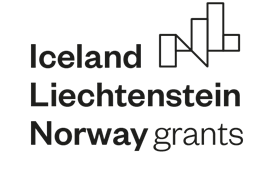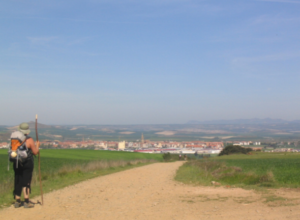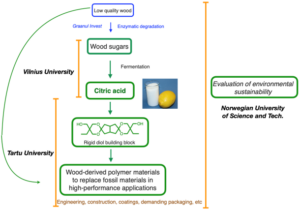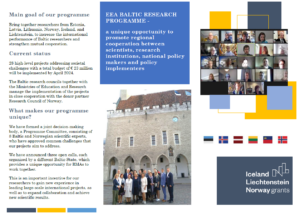The EEA Baltic Research Programme is a unique opportunity to promote regional cooperation between scientists, research institutions, national policy makers and policy implementers.
The Baltic Research Cooperation Programme is a joint research programme of the three Baltic States, funded by the years 2014–2021 Financial Mechanism of the European Economic Area (EEA) countries Norway, Iceland and Liechtenstein. Together with the state co-financing from Estonia, Latvia and Lithuania, the total budget of the programme is almost 23 million euros.
The aim of the programme is to enhance research collaboration between research and development institutions of Baltic states and donor countries Norway, Iceland and/or Liechtenstein; to stimulate long-term cooperation, capacity, and competence-building.
BRP final evaluation report
List of BRP projects that are thematically relevant to the EU missions
Three open calls were organized by Estonia (deadline in January 2019), Lithuania (deadline in April 2020) and Latvia (deadline in October 2020), respectively. 28 high-level projects addressing societal challenges with a total budget of 23 million euros will be implemented by April 2024.
Projects funded in Estonian call
Re-storied Sites and Routes as Inclusive Spaces and Places: Shared Imaginations and Multi-layered Heritage (EMP340)
Principal Investigator: Ülo Valk
Promoter: University of Tartu
Partners: University of Oslo, University of Latvia, Institute of Lithuanian Literature and Folklore
Project website: https://restoriedsites.ut.ee/
Photo: https://www.restoriedsites.ut.ee/
The project aims to explore the potential of cultural landmarks, heritage sites and other meaningful places in promoting social inclusion and to devise functional models of enhancing the integrative power of rural places in Estonia, Latvia, Lithuania, and Norway. In all these countries, remote religious sites and monuments – once marking the sacred spaces of Christianity – are in the process of acquiring new or additional value as sites of cultural heritage. This trend creates new public spaces for encounters between cultural groups, new identity narratives, new practices such as the current pilgrimage revival, and new tourist attractions with a significant economic potential. However, a shared understanding of places being a heritage creates new challenges as well: Whose stories give meaning to a site and who is declared an heir are questions now negotiated between religious denominations, ethnic groups, tourists and conservation groups, local and national stakeholders. In studying the dynamics of a currently (re)emerging web of destinations in peripheral regions, the project generates new knowledge on the relationship between people, landscapes, and story-worlds. We detail how places become meaningful to varied audiences and how they afford an inclusive and participatory, multi-layered heritage. With our chosen cases, we also address the challenges of rural development and environment friendly solutions, having a comparative perspective on parallel developments and sustainable approaches to place building in the different countries.
Project addresses following challenges set for this call: a) Migration; social inclusion; b) Environmentally friendly solutions; c) Regional economic development; employment; labour market regulations and social policy; d) More effective use of resources.
Towards elimination of cervical cancer: intelligent and personalised solutions for cancer screening (EMP416)
Principal Investigator: Anneli Uusküla
Promoter: University of Tartu
Partners: Cancer Registry of Norway, Lithuanian University of Health Sciences, Rīga Stradiņš University
Project website: https://sisu.ut.ee/ennetus-on-tervis
Photo: https://www.facebook.com/photo?fbid=676907663611262&set=pb.100038761039975.-2207520000 (EEA Baltic Cervical cancer screening project, FB)
Opportunities for the prevention and treatment of cervical cancer have already made substantial progress. However, there persists an inequality in disease burden and prevention interventions implemented and scaled-up across the European region. With this project, we aim to create and validate algorithms that deliver personalized cervical cancer screening recommendations. We will use already existing registry and health data, including data on HPV-types in screening samples, lifestyle data and HPV-vaccination status.
The expected impact for the Baltic states would be a predictive algorithm deployed within the respective programme for cervical cancer screening. This algorithm would be capable of stratifying the majority of screening attendants into those that need more frequent screening tests and those that need less frequent screening tests. The benefit of this function is a reduced cost of the screening programme due to reduction in over-screening and greater effect in terms cervical cancer prevention.
Novel high-performance polymers from lignocellulosic feedstock (EMP426)
Principal Investigator: Lauri Vares
Promoter: University of Tartu
Partners: Norwegian University of Science and Technology, Vilnius University
Project website: https://www.tuit.ut.ee/et/greenpolymers
Photo: from presentation of Lauri Vares
The general goal of this project is contributing to transformation of current fossil-based economy to environmentally sustainable economy based on renewable carbon sources. More specifically, this project develops new environmentally friendly platform for novel and rigid high-performance bio-based plastics potentially usable in various large volume and specific applications (e.g., stiff plastics for automotive and packaging industry, coatings, etc). As a raw material, a stream of wood sugars, which recently became available by the Estonian Company Graanul Invest, and is derived from low quality local wood residues, is used. A key intermediate in polymer development is citric acid, a large volume product produced currently from raw materials of agricultural origin; thus, the efficient route from lignocellulosic sugar stream to citric acid could therefore amplify the positive effects further. Importantly, the true environmental benefits and possible adverse effects of the novel technology and products are fully analysed, enabling to optimize the process for maximum positive environmental impact.
Thus, the project addresses two call challenges: more efficient use of resources and environmentally friendly solutions.
The project has a triple impact to the region: i) it develops novel new, more sustainable alternatives to plastic and chemical industry; ii) it potentially offers efficient use of local low-quality wood; iii) the full environmental profile of developed processes and polymers will be carefully assessed as a part of cooperation and the know-how of such lifecycle analysis (LCA) studies will be transferred to the region. These studies are carried out in cooperation with three partners: Vilnius University is studying the conversion of wood sugars to citric acid, Tartu University is developing novel plastics from citric acid, and the Norwegian University of Science and Technology is evaluating the environmental impact of the developed technologies.
Sustainable use of soil resources in the changing climate (SUCC) (EMP442)
Principal Investigator: Leho Tedersoo
Promoter: University of Tartu
Partners: UiT the Arctic University of Norway, SILAVA, Lithuanian Research Centre for Agriculture and Forestry
Project website: https://sisu.ut.ee/emp422succ/avaleht
European tundra and boreal forest ecosystems will experience one of the strongest impacts of climate change on Earth. Further human interventions may offer both threats and opportunities to restore ecosystem services and mitigate ecological and economic damage. Due to their effect on both productivity and soil processes, certain land use and forest management practices can be helpful for promoting soil C storage. To assess these issues, the project has five principal objectives:
Obj1: To develop novel molecular methods for rapid abundance assessment of various microbial groups and their potential of organic degradation and carbon release.
Obj2: To determine shifts in carbon allocation in plants and carbon sequestration in soil along the latitudinal gradient in response to climate change.
Obj3: To evaluate the economic costs and benefits of changing climate on various aspects of forestry and soil carbon balance.
Obj4: To determine ecological sustainability of afforestation of formerly agricultural land.
Obj5: To develop sustainable forestry and other land use practices to mitigate the negative effects of climate change on one hand and secure forest productivity on the other hand.
On a regional scale, this project intends to provide a scientific basis for policy making regarding sustainable management of forests and abandoned agricultural land from the perspectives of both climate change mitigation and forestry revenues. To fulfil these objectives, the Norway-Baltic research consortium was formed based on complementary expertise and is supported by modelling experts from Finland and the USA.
Optimised Residential Battery Energy Storage Systems (ORBES) (EMP474)
Principal Investigator: Andrei Blinov
Promoter: Tallinn University of Technology (TalTech)
Partners: Norwegian University of Science and Technology, Kaunas University of Technology, Riga Technical University
Project website: https://taltech.ee/en/orbes
Growth of renewable energy generation, like wind and solar, is aimed to decrease in the energy consumption from conventional (fossil) energy sources. These distributed energy sources are making the power grid structure decentralised, imposing a number of challenges that can limit their further applicability and extension.
The intermittent behaviour of the renewable generation promotes application of energy storage and associated energy management systems to increase self-consumption and enable more optimal use of available energy. Application of energy storage will allow to promote environmentally friendly solutions, such as renewable energy sources, which contributes to a global CO2 emission reduction.
In the residential sector, small-scale residential battery storage systems are receiving increased attention due to their size, safety, and flexibility. At the same time, the cost of such systems is still relatively high, and the return of investment is not evident. The project is aimed to evaluate and increase the feasibility and potential of residential battery energy storage systems, aiming to take the most benefits from this emerging technology. Precise models of the energy flows and storage systems considering Baltic Sea region scenarios are going to be obtained during the project.
More effective use of resources will be obtained by optimisation of power interface converters and collective control of residential storage systems. This will positively impact their life cycle cost and will lead to more accurate and reliable performance assessment of battery energy storage-based systems, allowing to optimise the energy flows and help residents of local neighbourhood/community to get broad benefits from available green energy resources easier and use them more effectively.
Academic Writing in the Baltic States: Rhetorical Structures through culture(s) and languages (BWrite) (EMP475)
Principal Investigator: Andrei Blinov
Promoter: Tallinn University of Technology (TalTech)
Partners: Norwegian University of Science and Technology, Kaunas University of Technology, Riga Technical University
Project website: https://taltech.ee/en/orbes
Growth of renewable energy generation, like wind and solar, is aimed to decrease in the energy consumption from conventional (fossil) energy sources. These distributed energy sources are making the power grid structure decentralised, imposing a number of challenges that can limit their further applicability and extension.
The intermittent behaviour of the renewable generation promotes application of energy storage and associated energy management systems to increase self-consumption and enable more optimal use of available energy. Application of energy storage will allow to promote environmentally friendly solutions, such as renewable energy sources, which contributes to a global CO2 emission reduction.
In the residential sector, small-scale residential battery storage systems are receiving increased attention due to their size, safety, and flexibility. At the same time, the cost of such systems is still relatively high, and the return of investment is not evident. The project is aimed to evaluate and increase the feasibility and potential of residential battery energy storage systems, aiming to take the most benefits from this emerging technology. Precise models of the energy flows and storage systems considering Baltic Sea region scenarios are going to be obtained during the project.
More effective use of resources will be obtained by optimisation of power interface converters and collective control of residential storage systems. This will positively impact their life cycle cost and will lead to more accurate and reliable performance assessment of battery energy storage-based systems, allowing to optimise the energy flows and help residents of local neighbourhood/community to get broad benefits from available green energy resources easier and use them more effectively.
Solutions to current and future problems on natural and constructed shorelines, eastern Baltic Sea (SolidShore) (EMP480)
Principal Investigator: Tarmo Soomere
Promoter: Tallinn University of Technology (TalTech)
Partners: Norwegian University of Science and Technology, Klaipėda University, Latvian Institute of Aquatic Ecology
Project website: https://wavelab.ioc.ee/?page_id=1102
Coastal resources are one of the major and often severely undervalued assets of marine countries. We aim at ways of their sustainable use while ensuring the good status of the nearshore ecosystem, safety of water and beach users. The core impact of the project is a contribution towards the creation of tailored, safe, and efficient infrastructure (ports, small harbors, etc.) as an important part of future societal and economic development in the eastern Baltic region and on Norwegian coasts.
We address two thematic challenges of the call:
(1) MORE EFFECTIVE USE OF coastal RESOURCES
(2) With limited space and competing demands in the coastal zone, it is imperative that the most ENVIRONMENTALLY FRIENDLY SOLUTIONS and effective options for the society and economy are chosen.
To reach more effective use of resources, we aim at a more comprehensive understanding of and detailed information about hydrodynamic drivers that shape the shore (waves, high water levels), may endanger beaches and infrastructure, influence sediment transport and its interaction with coastal infrastructure, and entrain finer sediments into littoral flow. A particular task is to advance the existing methods designed for coasts open to ocean swells towards their effective and sustainable use for natural and constructed sections of the Baltic Sea coast.
Another aim is to ensure the integrity of ecosystems and a sustainable future of the coastal system and its sections next to man-made interventions. For example, when building a small harbour, to maintain coastal natural character and views, its walls should be as low as possible, while being high enough to protect its interior during a storm. We look at dual (or some other novel) breakwater systems that will do the job. Such approaches need more knowledge for eastern Baltic conditions than is currently available. The variable nature of the coast means that minor changes in the design may mean big gains in terms of siltation, dredging and downdrift effects.
Estonian call for proposals 2018-2019
- Call for proposal
- Guideline for Applicants and Guideline for Evaluators
- Results of the Estonian call 2019 submission of proposals
- List of funded projects
- Members of the Programme Committee
- Announcement: 7 projects of the Baltic Research Programme received funding in the Estonian call
- Guidelines for Final Evaluation
Lithuanian call for proposals 2020
- Call for proposals
- Guideline for Applicants and Guideline for Evaluators
- Results of the Lithuanian call 2020 submission of proposals
- List of funded projects
- Announcement: 11 projects of the Baltic Research Programme received funding in the Lithuanian call
- Participation of Estonian research teams in funded projects
Legal basis: the main legal framework for the implementation of EEA Grants, Guideline for EEA Research Programmes
Contact:
Katrin Piller
+372 731 7382
katrin.piller@etag.ee
Estonian Research Council





